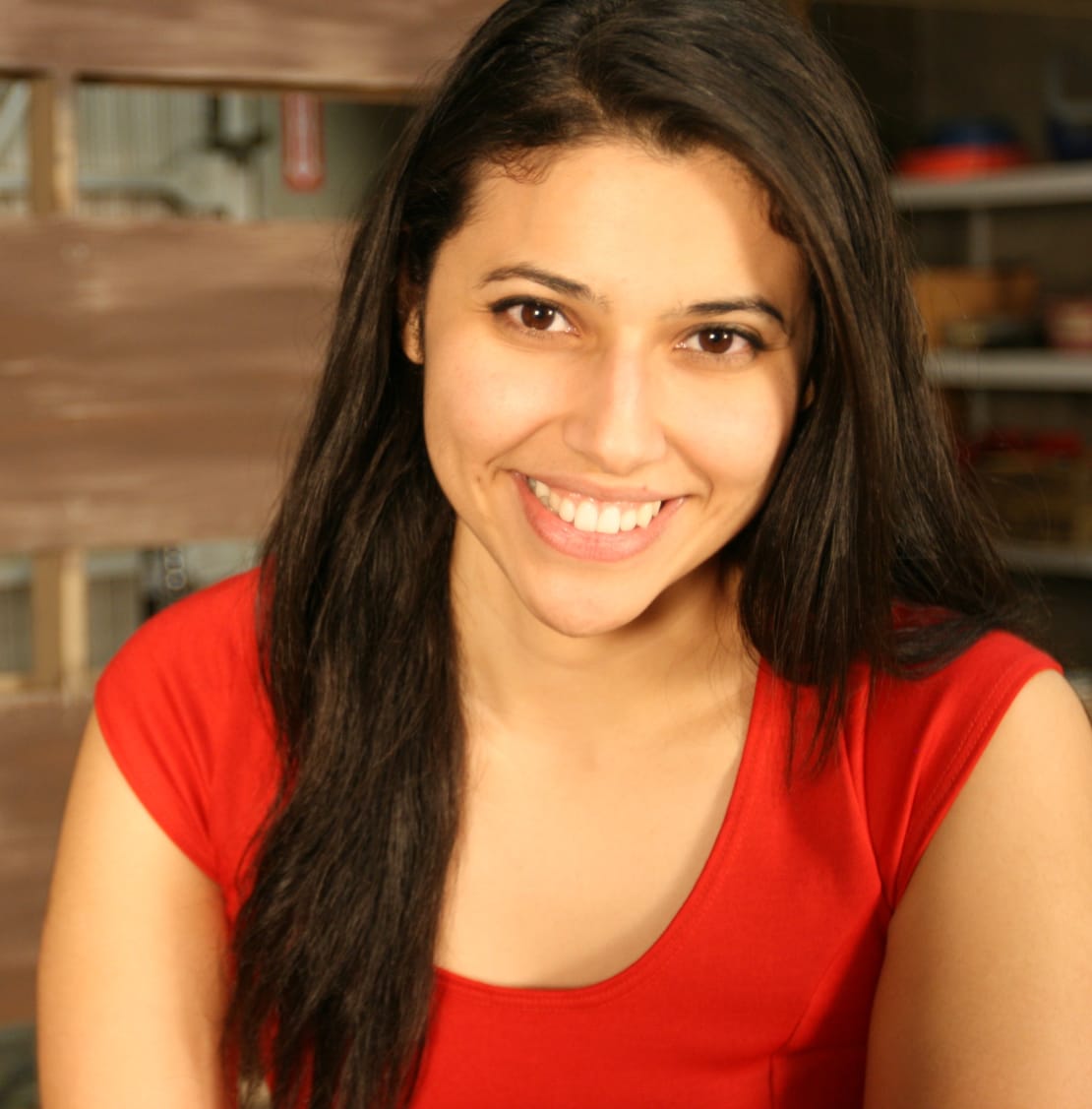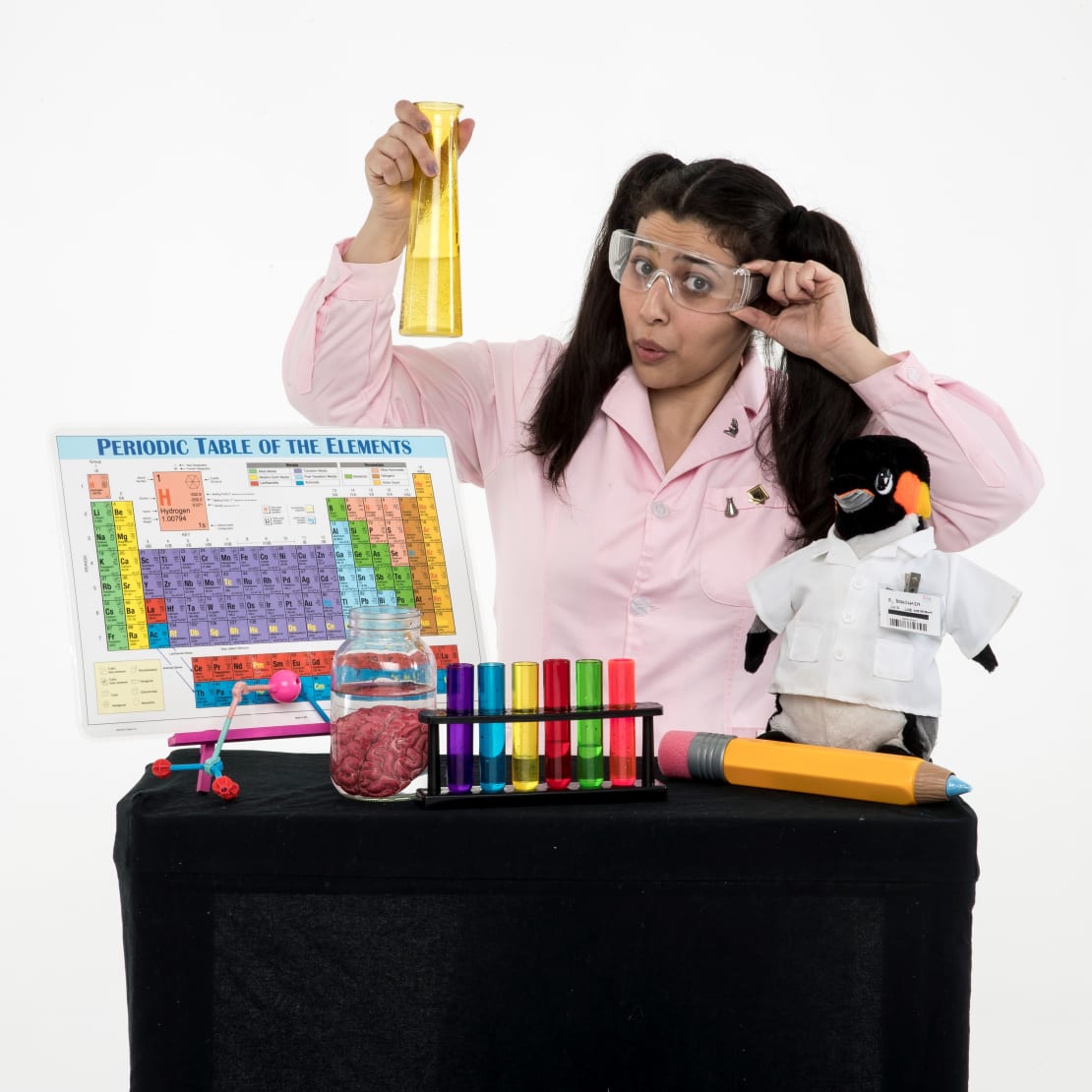
IceCube’s South Pole crew will have another pair of helping hands (and flippers) this summer season: Jocelyn Argueta will be at the Pole from November 30 to December 27 as our 2019 PolarTREC educator. (As for the flippers…keep reading to find out.)
PolarTREC, funded through awards from the National Science Foundation and administered by the Arctic Research Consortium of the United States (ARCUS), is a program that sends educators, formal and informal, to the Arctic or Antarctica for three to six weeks. At their respective sites, PolarTREC educators work alongside scientists and gain hands-on field research experience. “We have been sending educators to the South Pole with the PolarTREC program and its predecessor, Teachers Experiencing Antarctica and the Arctic (TEA), for more than two decades,” says Jim Madsen, IceCube’s Associate Director for Education & Outreach. “The educators have been a part of neutrino astronomy efforts at the South Pole from the days of the prototype AMANDA program.”
This year, we are excited to welcome Jocelyn Argueta, a bilingual scientist-performer with Phantom Projects Theatre Group in La Mirada, California. Jocelyn, who has a Bachelor’s degree in biochemistry and molecular biology from the University of California, Irvine, started as an actor in Phantom Projects’ touring shows. But she now has her own show based around her character—Jargie the Science Girl!—which she developed with Phantom Projects co-founder Steve Cisneros three years ago.

The name “Jargie” even has a fittingly scientific origin story: During her days as a student research assistant, Jocelyn says everyone around the lab called her “Jargueta,” a combination of her first initial and last name. Eventually it was shortened to Jargie.
Through Jargie the Science Girl, Jocelyn has now brought the joys of science to hundreds of elementary school students across the country—with the help of her lab assistant, Benjamin the Penguin, of course.
Her next adventure is to the South Pole where she will meet up with our winterovers and the rest of the summer crew to help out around the station. You can follow along with Jocelyn’s (and Jargie’s) adventures on Twitter (@TheScienceJ) and Instagram (@TheScienceJ and @JargieTheScienceGirl). She will also be blogging her adventures on her PolarTREC journal in both English and Spanish. (Naturally, Benjamin the Penguin will be tagging along.)
Read our Q&A below to learn more about Jocelyn’s background, why she loves outreach, and what she hopes to get out of her time at the South Pole. The conversation was edited for length and clarity.
IceCube: What’s your scientific background?
Jocelyn: In undergrad, I did a lot of research on Alzheimer’s disease. I was really interested in research from the very beginning, so I did about three and a half years in the lab. That’s kind of where I really fell in love with science because I’d go to class and then I’d go to lab and I could see how everything came to life. Then, after college, I worked in the private sector in allergy diagnostics, continued down the lab path. I went to grad school at USC for two years in the neuroscience program.
It was at the same time that I started grad school that I started developing “Jargie the Science Girl!” and that’s kind of when my focus shifted. I started doing a lot more outreach through the show, and I realized that was where my passion was the most. So I left the lab to do full-time outreach.
How did you get inspired to go into science in the first place? Were there any specific moments?
I had this biology teacher in high school—we still keep in touch, he is so supportive of the show—and he was just the quirkiest, craziest science teacher. He had a lot of larger-than-life things in the classroom, was always very character-like. Even to this day, I’m convinced that having him has shaped a lot of how I like to present science and teach science because it made it fun for me. I would look forward to his class, even though sometimes it was hard—I just loved to see what kind of show he put on for whatever topic we were learning. He would have ties that would match what we learned that day—like a DNA tie or a dinosaur tie. So I think his class really helped me to take science out of the textbook and realize you could have a lot of fun with it.
Why science communication and outreach?
I find the most reward in sharing science. I love to do science and I did it for so long, but my favorite part was always sharing what I had learned or what I was doing, and getting other people to understand what I was doing, even though it was usually so specific to the field.
Initially when we did the show, we were targeting older grades. But as we kept developing, we went more into elementary-aged kids because I saw that there wasn’t as much focus necessarily on giving science to them. I think it’s a shame because they’re so imaginative in that stage. They are like sponges: They just want to learn, and they want to be excited about whatever you’re excited about! So I think showing them at a very young age that science is everywhere—and that it’s not intimidating and it’s fun, even if they don’t go into science—can hopefully help foster that creativity and confidence to approach anything that they might find interesting.
Tell me more about Jargie and how she came about. Do you have a theatre background?
While I was doing my undergrad, I started working with Phantom Projects, which is the nonprofit theatre company that I work with now. I was just a performer there, so I always loved theatre. I would have rehearsals at night and then go to lab during the day, and I always felt like, “The two worlds that I love so much…why don’t they intersect?”
So I approached the producer there, Steve, with, “How about we make a science show?” It started off as almost a nonchalant conversation, and I think I just took it seriously and we just rolled with it and developed the show.
It started very small; we just toured it to schools and community centers for free at first just to see what the response was, what the need was. And then when we saw how well received it was, we kept developing it, and now we have a national version that tours to bigger venues throughout the country. We were just at the Smithsonian in March, and up in Edmonds, Washington, in April, and then we have a show coming up in California after Antarctica.
Do you have any favorite moments from a Jargie show?
One was from this past summer. We did a tour in Seattle with the libraries. A mom and her daughter came to talk to us after one of the shows, and the mom was really excited because her daughter loves science, and she wanted to find more resources for her. They were people of color, so she was also excited because she wanted her daughter to see someone like that. I don’t think that kind of thing always crosses my mind because I’m just like, “I just love science! Let’s talk about it!” But it made me realize, when I was younger, I wished I also had someone who looked like me, who could interact with me and talk to me about my interests. So that was really memorable for me, seeing that I could hopefully inspire someone like me to do whatever interests them and excites them.
And then it’s just the little things, like students coming up after the show and saying, “Where can I learn more about this?” or “I want to be a scientist!” or even those that say, “I don’t like science, but this was really interesting, this was really fun.” So it’s just hearing the comments afterward and seeing that kids connected with it, or even having them come and ask a question that I hadn’t thought about, knowing that they are engaging with what we are talking about.
Have you found anything to be most effective for teaching science to young kids?
Yes. What we do in the show a lot is build up from common things—things you might see in the household, things they might see at school on the playground—and then introduce concepts that way. For example, we have an experiment that’s all based around a hairdryer. So it’s things that they have seen and they’re comfortable with. Kids want to feel empowered in that sense, I think. In the show, it’s great to start with something they already know because you’re inviting them into the conversation. So we love to start with household things, normal things, and then slowly integrate things you would see in a lab: beakers, different concepts, vocabulary. And by then, they’re so comfortable with what we’re talking about that it seems a lot easier for them to pick it up.
How did you become a PolarTREC educator?
Jim [Madsen] emailed us saying, “Hey, would Jocelyn be interested in going to the South Pole? There’s this program…” And then I later found out that he saw an ad for Jargie on a flight he was on, and it just so happened coincidentally that he had the open spot and needed someone. Luckily the dates worked out, so I went through the interview and the PQ [physically qualifying] process, and here I am. I feel like everything just worked out so perfectly. It was a giant coincidence, but I’m really excited to be a part of this!
What are you most excited for?
I think just the first step off the plane, just stepping onto the ice for the first time and actually being there in Antarctica. I’m just excited to see their labs and to talk to everyone who works and lives there and does science there.
What do you think will be the biggest challenge?
I’m a little nervous about the elevation and about being able to sleep with the sun always up. I feel like, physically, that might be the biggest challenge for me. And then another challenge is just “drinking from the fire hose,” so to speak—all the information that I’m going to learn and feeling like maybe there won’t be enough time. So I think balancing, taking it all in while also being present, and still trying to acquire as much knowledge as possible to bring back with me.
What do you hope to get out of the experience?
I just want to learn everything. I want to learn as much as possible. I want to be an Antarctic expert as much as I can for those four weeks, because there’s so much amazing science going on there. The more I read about it, I’m just like, “How does this exist? It’s so cool!” And I can’t even begin to imagine how many students might be excited about the fact that they could be a scientist working on the ice one day. That’s such a crazy thought, but it’s real! So I just want to learn everything. And I want to be able to apply it in a way that makes others excited.